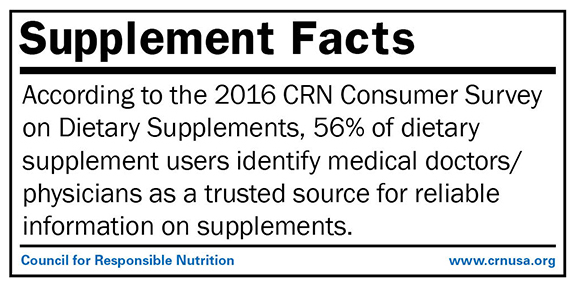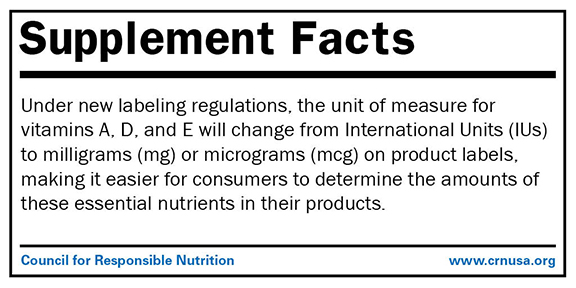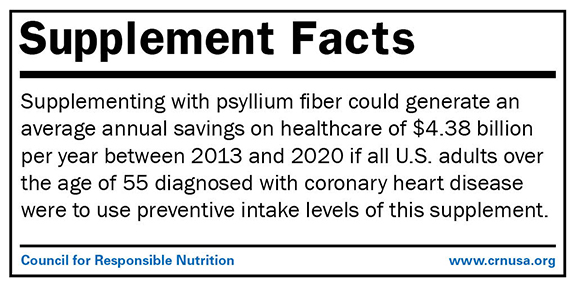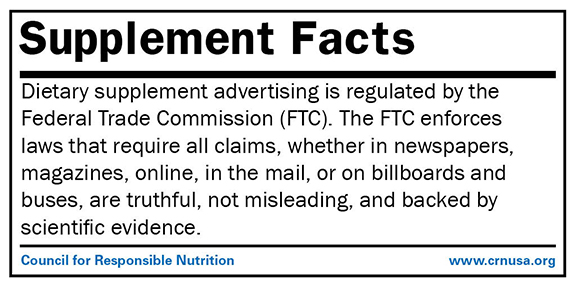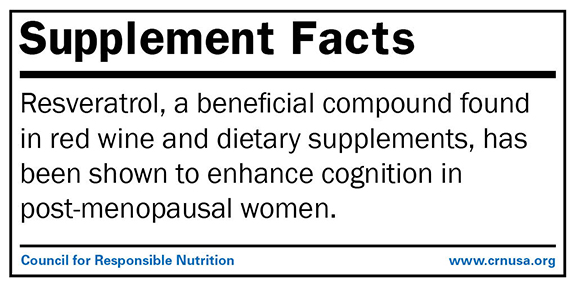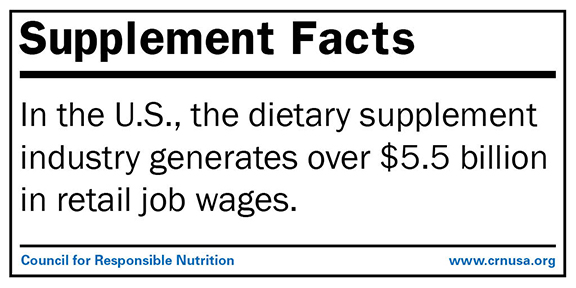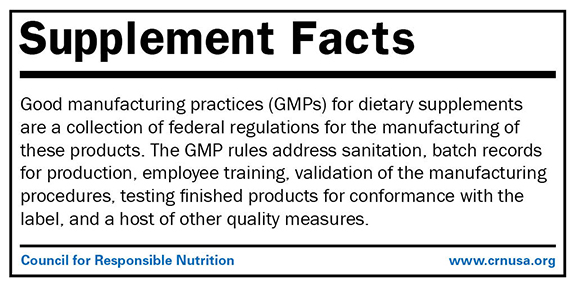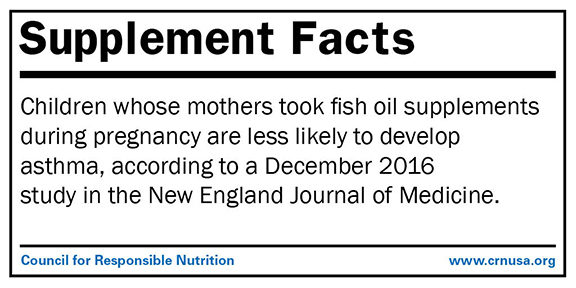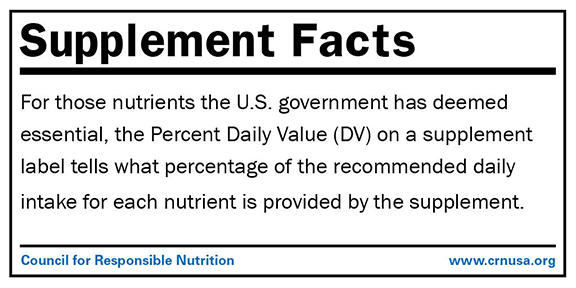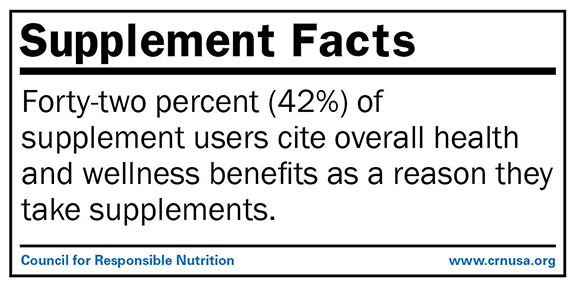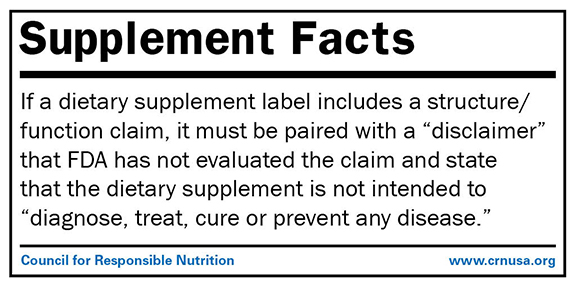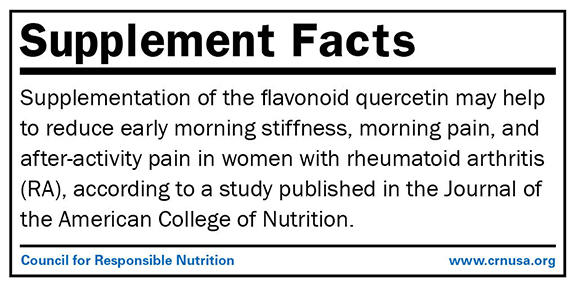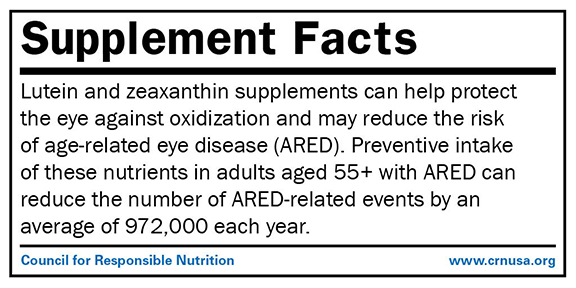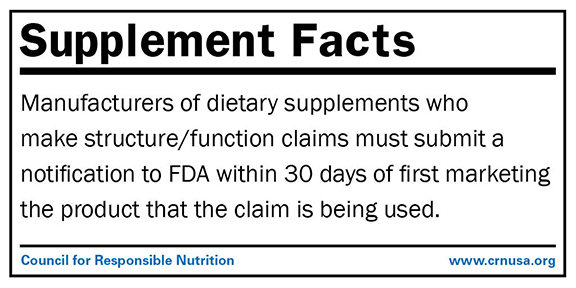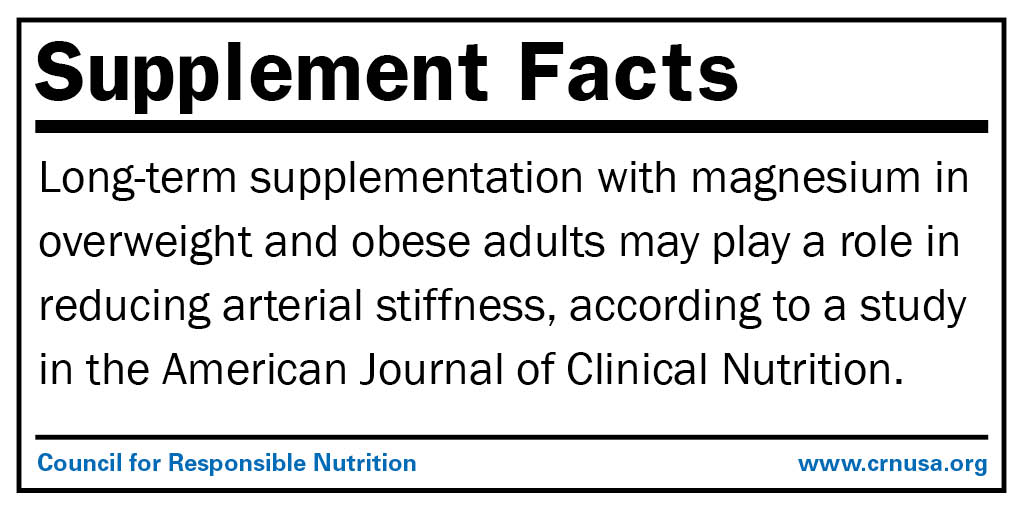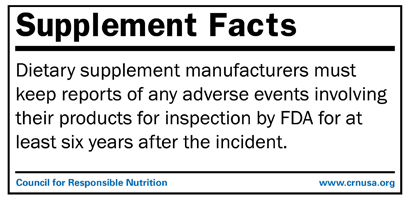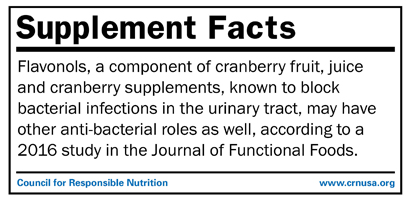
Browse below and click through to share more facts:
REGULATORY FACT: Under new labeling regulations, the unit of measure for vitamins A, D, and E will change from International Units (IUs) to milligrams (mg) or micrograms (mcg) on product labels, making it easier for consumers to determine the amounts of these essential nutrients in their products. See it.
HEALTHCARE COST SAVINGS FACT: Supplementing with psyllium fiber could generate an average annual savings on healthcare of $4.38 billion per year between 2013 and 2020 if all U.S. adults over the age of 55 diagnosed with coronary heart disease were to use preventive intake levels of this supplement. See it.
REGULATORY FACT: Dietary supplement advertising is regulated by the Federal Trade Commission (FTC). The FTC enforces laws that require all claims, whether in newspapers, magazines, online, in the mail, or on billboards and buses, are truthful, not misleading, and backed by scientific evidence. See it.
SCIENCE FACT: Resveratrol, a beneficial compound found in red wine and dietary supplements, has been shown to enhance cognition in post-menopausal women. See it.
ECONOMIC IMPACT FACT: In the U.S., the dietary supplement industry generates over $5.5 billion in retail job wages. See it.
CONSUMER SURVEY FACT: According to the 2016 CRN Consumer Survey on Dietary Supplements, 56% of dietary supplement users identify medical doctors/physicians as a trusted source for reliable information on supplements. See it.
REGULATORY FACT: Good manufacturing practices (GMPs) for dietary supplements are a collection of federal regulations for the manufacturing of these products. The GMP rules address sanitation, batch records for production, employee training, validation of the manufacturing procedures, testing finished products for conformance with the label, and a host of other quality measures. See it.
SCIENCE FACT: Children whose mothers took fish oil supplements during pregnancy are less likely to develop asthma, according to a December 2016 study in the New England Journal of Medicine. See it.
DIETARY SUPPLEMENT FACT:
For those nutrients the U.S. government has deemed essential, the Percent Daily Value (DV) on a supplement label tells what percentage of the recommended daily intake for each nutrient is provided by the supplement. See it.
CONSUMER SURVEY FACT:
Forty-two percent (42%) of supplement users cite overall health and wellness benefits as a reason they take supplements. See it.
REGULATORY FACT:
If a dietary supplement label includes a structure/function claim, it must be paired with a “disclaimer” that FDA has not evaluated the claim and state that the dietary supplement is not intended to “diagnose, treat, cure or prevent any disease.” See it.
SCIENCE FACT:
Supplementation of the flavonoid quercetin may help to reduce early morning stiffness, morning pain, and after-activity pain in women with rheumatoid arthritis (RA), according to a study published in the Journal of the American College of Nutrition. See it.
HEALTH CARE COST SAVINGS FACT:
Lutein and zeaxanthin supplements can help protect the eye against oxidization and may reduce the risk of age-related eye disease (ARED). Preventive intake of these nutrients in adults aged 55+ with ARED can reduce the number of ARED-related events by an average of 972,000 each year. See it.
REGULATORY FACT:
Manufacturers of dietary supplements who make structure/function claims must submit a notification to FDA within 30 days of first marketing the product that the claim is being used. See it.
SCIENCE FACT:
Long-term supplementation with magnesium in overweight and obese adults may play a role in reducing arterial stiffness, according to a study in the American Journal of Clinical Nutrition. See it.
REGULATORY FACT:
Dietary supplement manufacturers must keep reports of any adverse events involving their products for inspection by FDA for at least six years after the incident. See it.
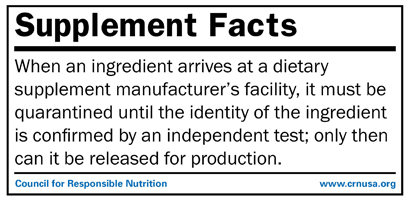 REGULATORY:
REGULATORY:
When an ingredient arrives at a dietary supplement manufacturer’s facility, it must be quarantined until the identity of the ingredient is confirmed by independent test; only then can it be released for production. See it.
SCIENCE FACT:
Flavonols, a component of cranberry fruit, juice and cranberry supplements, known to block bacterial infections in the urinary tract, may have other anti-bacterial roles as well, according to a 2016 study in the Journal of Functional Foods. See it.
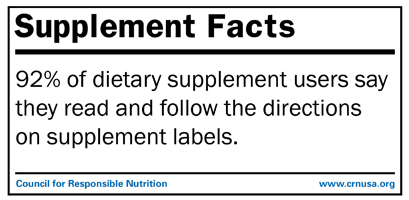 CONSUMER SURVEY FACT:
CONSUMER SURVEY FACT:
Ninety two percent (92%) of dietary supplement users say they read and follow the directions on supplement labels. See it.
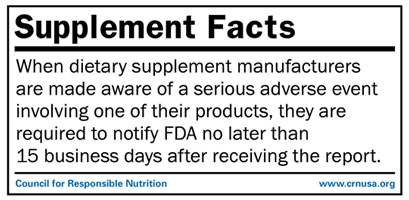 REGULATORY FACT:
REGULATORY FACT:
When dietary supplement manufacturers are made aware of a serious adverse event involving one of their products, they are required to notify FDA no later than 15 business days after receiving the report. See it.
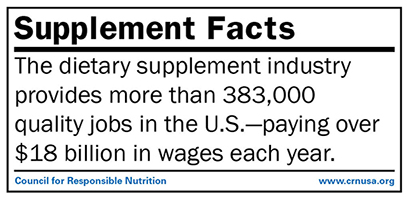 ECONOMIC IMPACT FACT:
ECONOMIC IMPACT FACT:
The dietary supplement industry provides more than 383,000 quality jobs in the U.S.—paying over $18 billion in wages each year. See it.


